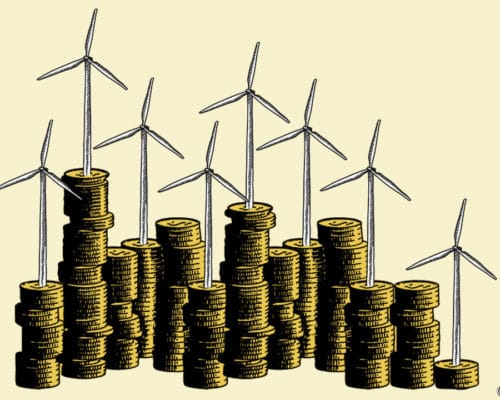Renewable Energy

Net-Zero Energy Buildings: A Stepping Stone to Decarbonisation
Net-zero energy buildings are gaining traction in global markets. Using a combination of sustainable design principles and smart technologies, they limit emissions and offset unavoidable CO2 production. Their large scale implementation is a viable way to achieve net-zero goals.

The IMF’s Role: Economic Impacts of Climate Change on The Global Economy
Can the IMF create and implement economic policies to help countries through climate impacts?

Net-Zero Emissions: Cutting Generation and Increasing Offsets
Net-zero for the world is vital. In 2021, two countries already reached this goal, with several close-to. These trends need to continue.

Is “Greenflation” behind Higher Global Energy Prices?
Greenflation is a real risk on the mind of many renewable energy experts and rising commodity prices could increase the cost of the energy transition.

JERA’s Vietnam LNG Plans in the Wake of PDP8
Vietnam is undisputedly among the world's best renewable energy success stories. The country needs to continue marching towards sustainability and retain its position as a lucrative market for green investors. However, the looming boom in the local LNG market risks derailing this progress.

Net-Zero Investments in Asia – What the Latest AIGCC Report Tells Us
The 3rd edition of the AIGCC's Net-Zero Investment in Asia report signals a notable positive change in momentum and perception of climate-aligned investments. Considering the importance of Asia for the global net-zero goals, this is a welcome sign that one of the most essential parts of the market is looking in the right direction.

IPCC Report: Climate Finance for Adaptation Must Increase for Developing Countries
The latest IPCC Working Group II report largely stresses the need to accelerate climate adaptation, eradicate injustice and end the use of fossil fuels. The report, ‘Climate Change 2022: Impacts, Adaptation, and Vulnerability,’ emphasised that coal and other fossil fuels are choking humanity.
The China Belt and Road Initiative Investment Report 2021 and its Message to the World
The latest Belt and Road Initiative Investment Report is a testament that China will be looking to further strengthen its case as the global clean energy leader through extensive green financing and diminishing support for coal.
Renewable Energy in Cambodia – Opportunities and Challenges
Due to its abundant hydropower resources, Cambodia champions the clean energy capacity charts across ASEAN. However, going forward, the country would need to substantially diversify its renewable energy mix by capitalizing on its untapped solar power potential.
China’s Hydrogen Strategy for Olympics 2022: Pushing Green Hydrogen Transport
The Beijing Olympics are being powered by 100% renewable energy. A significant part of this is public transportation vehicles that run on green hydrogen. What does this mean for the future of hydrogen energy in Asia?
The Global Energy Transition: How the World Sees It
The global energy transition is a reality. Public pressure, falling renewable energy costs, and improving technology are driving the change. The coming decade will be a pivotal point in this transition and will likely dictate whether we meet the international climate goals.
Energy Transition in Asia: Balancing Two Sides
Asia's energy transition has been largely lackluster. Several of the world's largest polluters are found in the region and emissions rates have been steadily climbing. But with China leading the clean energy transition in Asia, will the region be able to spur forward?
What Is The Current Energy Transition Strategy?
Successfully switching to renewable energy requires a well thought out strategy. There are multiple stages in the transition, and each must be considered.
Where Does India Stand in the Energy Transition?
India has one of the largest installed renewable energy capacities globally, but the country's current share of renewable energy does not cover its "fair share" of decarbonisation efforts. However, with its GDP steadily growing, it is perfect timing for India to capitalise on renewables.
Most Popular
Categories
-
10
-
34
-
126
-
4
-
17
-
46
-
52
-
11
-
10
-
15
-
24
-
6
-
1
-
5
-
6
-
283
-
200
-
17
-
24
-
1
-
1
-
23
-
41
-
44
-
88
-
18
-
86
-
41
-
17
-
11
-
43
-
54
-
86
-
299
-
22
-
44
-
36
-
11
-
42
-
36

